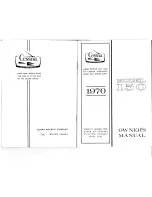
DG Flugzeugbau GmbH
Flight Manual LS 8-18 Limitations
2.2 Airspeeds (IAS)
Airspeed limitations and their operational significance are shown below:
Maximum
permissible
Speed
IAS
Remarks
VNE
Never exceed speed in
calm air and up to an
altitude above MSL of:
Km/h Kt. mph
Do not exceed this speed in any operation
and do not use more than 1/3 of control
deflection.
2000m ( 6500ft)
280 151 174
3000m ( 9800ft)
266 144 165
4000m (13100ft)
253 137 157
6000m (19700ft)
227 122 141
8000m (26200ft)
202 109 126
10000m (32800ft)
179 97 111
12000m (39400ft)
156 84 97
VRA
Rough air speed
190 103 118
Do not exceed this speed except in calm air
and then only with caution.
Examples of rough air are lee wave rotor,
thunderclouds, dust devils and turbulence
when crossing mountain ridges in strong
winds.
VA
Manoeuvring speed
190 103 118
Do not make full or abrupt control movement
above this speed, because under certain
conditions the sailplane may be overstressed
by full control movement.
VW Maximum
winch-
launching speed
140 76 87
Do not exceed this speed during winch- or
auto-tow launching.
VT
Maximum aero towing
speed
190 103 118
Do not exceed this speed during aero towing.
VL0
280 151 174
Maximum landing gear
operating speed
Do not extend or retract the landing gear
above this speed.
Maximum air brake
extension speed
280 151 174
Edition: July 1999
LBA-appr. Revision - 0
Page 2-2




































